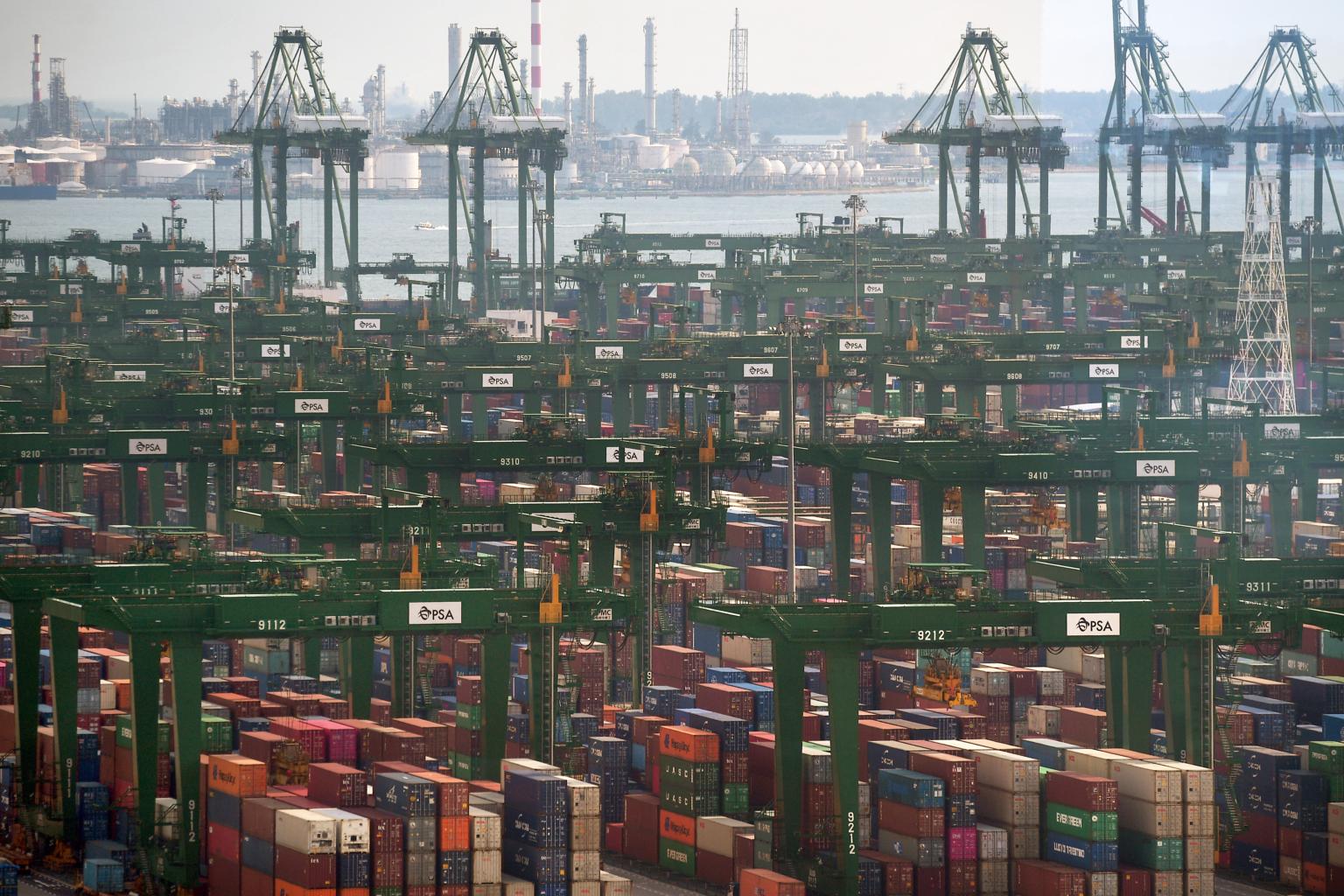Spotlight on RCEP trade talks when virtual Asean Summit begins on Thursday
Sign up now: Get ST's newsletters delivered to your inbox

If everything falls into place, the RCEP will be the world's largest trade pact even without the inclusion of India.
ST PHOTO: KUA CHEE SIONG
SINGAPORE - Prime Minister Lee Hsien Loong will meet his regional counterparts virtually for this week's Asean Summit and related meetings, during which the Regional Comprehensive Economic Partnership (RCEP) trade deal is expected to be signed, after years of negotiation.
Other items on the agenda include the official launch of the region's reserve stockpile of essential medical supplies, as well as the Asean Comprehensive Recovery Framework to help countries rebound from the Covid-19 pandemic.
In line with this year's theme - Cohesive and Responsive Asean - regional leaders will also discuss the public health and socio-economic challenges posed by Covid-19, and chart a path to recovery, said the Prime Minister's Office in a statement on Wednesday (Nov 11).
"The leaders will also exchange views on regional and international issues, and continue discussions on how to strengthen regional cooperation, reinforce Asean centrality, and promote regional peace and stability," it added.
This week's meetings will be chaired by Vietnam's Prime Minister Nguyen Xuan Phuc, whose country holds the rotating chairmanship of Asean this year.
The conclusion of the region-wide trade deal, which is set to be signed on Sunday, has been a key goal of the grouping this year.
If everything falls into place, the RCEP will be the world's largest trade pact, even without the inclusion of India, which pulled out last year.
The deal involves 15 countries: Asean's 10 member states, as well as China, Japan, South Korea, Australia and New Zealand. Together, they contribute about one-third of the world's gross domestic product.
Asean alone has a population of nearly 640 million people and a combined gross domestic product of US$2.57 trillion (S$3.47 trillion). Some suggest that it is poised to become the fourth-largest economy in the world by 2030.
Senior Indonesian trade official Iman Pambagyo, who chairs the RCEP Trade Negotiating Committee, told The Straits Times that participating countries hope the agreement will drive economic recovery in the next two years in the region, where a regional supply chain has been built, thanks to existing free trade deals between Asean and its trading partners.
Ministers from the RCEP participating countries noted in June that the coronavirus pandemic has added the importance of the deal.
On Wednesday, Mr Iman added: "Against the backdrop of low confidence in the multilateral trading system, ongoing trade tensions amongst a number of countries, rising protectionism and the impact of Covid-19, the signing of the RCEP is a signal to the world and businesses that countries in this region remain optimistic and have a forward-looking orientation in terms of deepening and expanding regional economic integration to play a bolder role in the global value chain."
The twice-yearly meetings of regional leaders officially start on Thursday (Nov 12) and will end on Sunday.
On Thursday, Asean leaders will have their annual summits with China, India, Japan and South Korea. The Asean-Japan Summit will see the launch of the new Asean Centre for Public Health Emergencies and Emerging Diseases. The inaugural Asean Women Leaders' Summit will also take place this evening.
On Saturday, Asean leaders will have summits with the United States, Australia and New Zealand, as well as the Asean Plus Three Summit with China, Japan and South Korea. The East Asia Summit (EAS) will cap that day's meetings.
The EAS is a forum for the 10 Asean nations and their eight key partners - Australia, China, India, Japan, New Zealand, South Korea, the United States and Russia - to discuss political, security, and economic issues affecting the wider Asia-Pacific region.
The various initiatives launched at the Asean summit will help chart the region's recovery, said Foreign Minister Vivian Balakrishnan in a Facebook post on Tuesday.
At the close of the summit, Vietnam will hand over the Asean chairmanship to Brunei.


